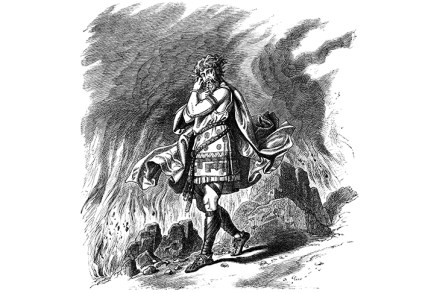An uncertain world
The venerable Oxford philologist Max Müller held that ‘mythology, which was the bane of the ancient world, is in truth a disease of language’. Gods filled a void, reanimating meaning as words became more fixed and less metaphorical. A more fundamental disease of language — the words themselves — is the subject of Paul Kingsnorth’s memoir. It takes the form of a series of meditations that weave to and fro around the question that forms its narrative thread: should he give up writing in favour of a more innocent life of working his land and raising his family? The old trope of the writer as wordsmith, forger of truth and




















